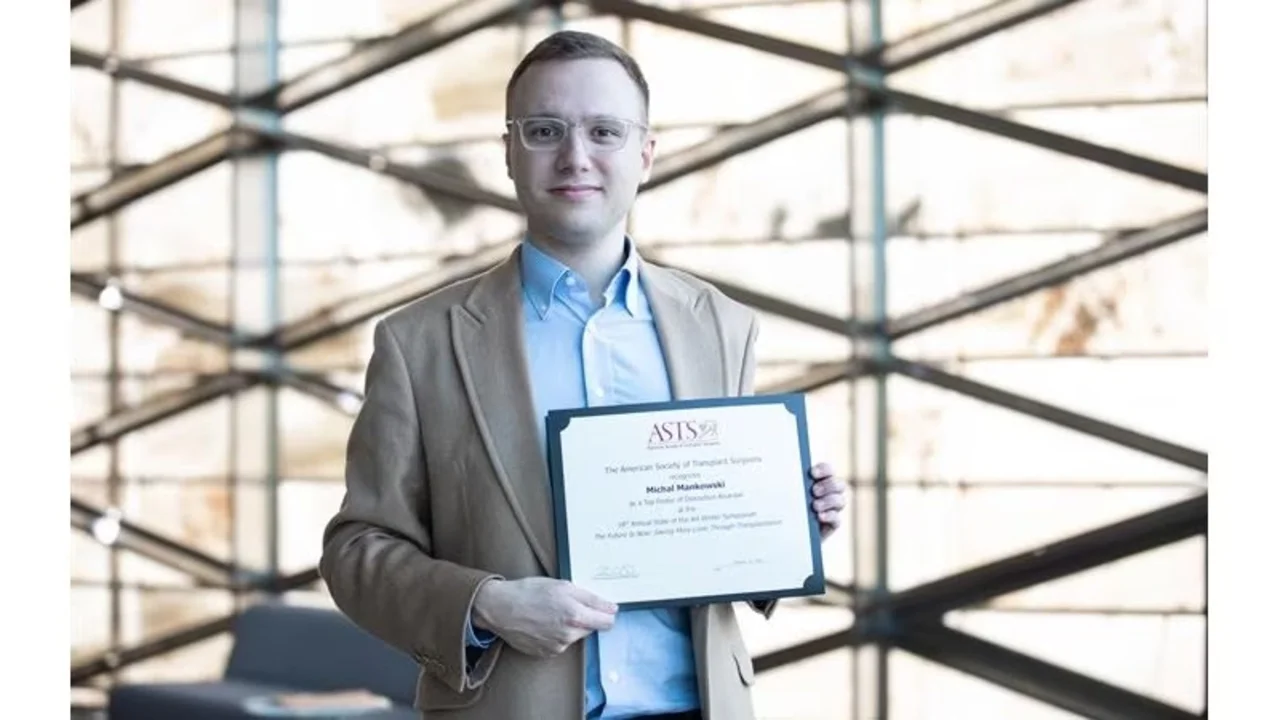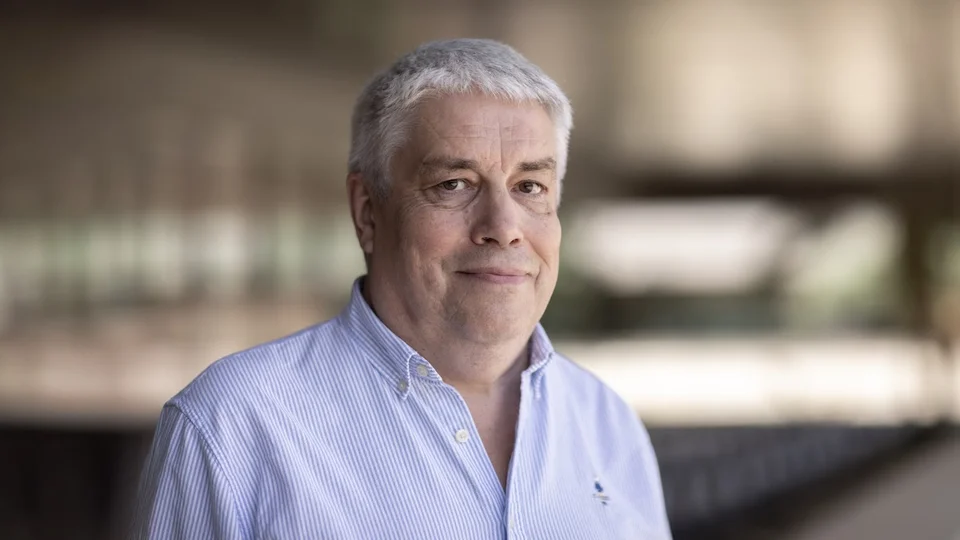
Ph.D. student Michał Mańkowski wins poster award at the 18th Annual American Society of Transplant Surgeons Symposium
Michał Mańkowski, a Ph.D. student in the University's Computer, Electrical and Mathematical Science and Engineering (CEMSE) division, won the Poster of Distinction Award at the American Society of Transplant Surgeons (ASTS) 18th Annual State of the Art Winter Symposium. The event, which was held in Miami Beach, Florida, U.S., from January 11 to 14, also voted Mańkowski's soapbox presentation as the symposium's best solution on how more lives can be saved through transplantation. Mańkowski presented on behalf of Professor Sommer Gentry, his supervisor at the Johns Hopkins School of Medicine.
About
Michał Mańkowski, a Ph.D. student in the University's Computer, Electrical and Mathematical Science and Engineering (CEMSE) division, won the Poster of Distinction Award at the American Society of Transplant Surgeons (ASTS) 18th Annual State of the Art Winter Symposium. The event, which was held in Miami Beach, Florida, U.S., from January 11 to 14, also voted Mańkowski's soapbox presentation as the symposium's best solution on how more lives can be saved through transplantation. Mańkowski presented on behalf of Professor Sommer Gentry, his supervisor at the Johns Hopkins School of Medicine.
Mańkowski's winning poster at the ASTS winter symposium was entitled "The Future Is Now: Saving More Lives Through Transplantation," and it is a result of his summer 2017 research training at Johns Hopkins University under the supervision of Gentry. The winning poster highlighted his ongoing research regarding combinatorial optimization, operation research and management science (with an application in healthcare).
"My poster describes a simulation that can be utilized by policymakers where we simulate a new kidney allocation system to accelerate organ placement, with a focus on marginal quality kidneys. A similar system already exists in the U.K. We tried to bring that allocation system to U.S.; however, because of the size of the U.S. and the number of transplant centers involved, we needed to come up with a new idea," he said.
'The current allocation system uses sequentially expiring offers: each transplant center's response begins only after that center becomes primary. Our alternative model would be to make simultaneously expiring offers, which would require a batch of, say, five transplant centers to simultaneously evaluate and respond to an organ offer within one hour for example," Mańkowski added.
Read the full article
